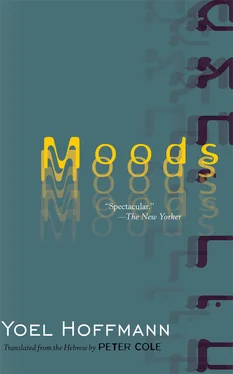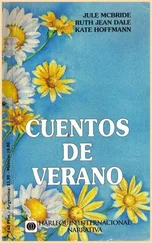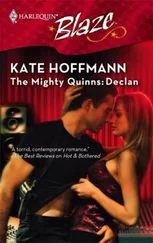[152]
We forgot to wish the psychologists a Happy New Year. No doubt the cold makes it harder for them to look into souls.
If only the New Year would bring about a condition in which their souls would melt (as one melts lead) into the great form of the soul of the world, and there’d no longer be any separation between their eyes (behind glasses) and the eyes of the people they’re looking into. And that the rule against hugging others might be dropped, and, above all, that someone would hug them.
Because there is no loneliness greater than that of the psychologist. His thought is always doubled, as he’s forced to consider thought upon thought, and sometimes thought upon thought upon thought.
And apropos thought upon thought: It goes without saying that we also greet the philosophers. But for them we need — above all — to pray that they get some sleep.
We (which is to say I) especially want to wish a Happy New Year to the women, because they so often go unloved. And of all of mankind’s crimes, this is the greatest.
[153]
The reader should always see the paper that’s behind the words. Not what was there before the words were written, but what resurfaces after they’re read.
Don’t believe the physicists who talk about specific density. Things that you see, even if they seem heavy, are all the stuff of dreams. And don’t believe that either. The dream itself is a dream.
But wait. When you see large things like a hippopotamus or a Sumo wrestler you’re tempted to credit them with an exaggerated degree of actuality. My stepmother Francesca, for instance, was very hard to doubt. But once we knew a very fragile woman, who appeared and then vanished like a hologram. It was very easy to doubt her, but the longing for her was painful.
[154]
Because of this longing, which is in fact hard to bear, novels of some three hundred and even six hundred pages are written and countless numbers of people who fill them come and go, like a medicine cabinet full of Tylenol.
You need to put things beside one another, a novel like this one and a crow. Or, if you’d rather, a turtle.
Once a crow came in through the front door and stood on the kitchen table. At first it pecked at breadcrumbs and then it froze there and stared at us.
That’s why we’re writing what we write. If only we knew what he saw when he stared we would tell the reader (instead of this book). But because we don’t, we keep on writing.
[155]
Now we’re reminded that a son was born to Uncle Shamu and his Muslim wife, and he was called Moshe. Maybe because both the Jews and the Muslims believe in the biblical Moses and maybe because his grandfather, which is to say, Uncle Shamu’s father, was called Sandor Moshe Farkash.
Uncle Shamu and his Muslim wife are already dead and their son Moshe left for America and opened a refrigerator business there. We visited him when we were in New York. He lives in Queens, and his wife, who came from Croatia, made us latkes. As we said goodbye, Moshe hugged us and gave us a fountain pen. One of those pens that his father, Uncle Shamu, had left behind.
In Tel Aviv, at the last store that sells vintage fountain pens (on Allenby Street), they replaced the rubber ink sac, straightened the gold nib just a little, and sold us a new inkwell. Sometimes we dip the nib into the well, fill the pen with ink, then squirt the ink back out.
[156]
On this night (2009, between the third and fourth of January) the cannons are roaring and therefore the muses have to be silenced. In any case, they’re infernal females who trouble the sleep of man.
All we can think of is the song we heard a long time ago, when we were little. Maybe Francesca, my stepmother, sang it. O dear Augustin, Augustin, Augustin, O Augustin, my dear, all is lost.
Uncle Max, my stepmother Francesca’s father’s brother, was taken by the Gestapo to a concentration camp. He clutched his World War I medals to his chest and hobbled along on his wooden leg (the leg of flesh he’d given as a gift to Germany) out to the street.
His leg most likely went up in smoke at Auschwitz. But if we had it today we’d set it afire now in order to warm up the people of Gaza, who are freezing.
[157]
Now that we’ve remembered the song about Augustin, we also remember the tongue twisters my stepmother Francesca taught us.
Try saying the following: “Der Potsdamer Postkutscher putzt den Potsdamer Postkutschekasten” (that is, approximately, the Potsdam post coach’s coachman cleans the postbox of the post coach of Potsdam).
Or: “Herr von Hagen darf ich fra-gen, wie viel Kra-gen, Sie getra-gen, als Sie la-gen krank am Ma-gen in der Hauptstadt Kopenha-gen” (more roughly still, Dare I ask, Mr. von Hagen, / how tight was the collar you wore when you gagged on / the apple core, which left you sore, / in the capital’s hospital, in Copenhagen).
Or (in Berlin German): “Ick sitze da und esse Klops, / uff eenmal kloppt’s / ick denk nanu! Nanu denk ick / Ick jehe raus und kieke, / und wer steht draußen? Icke!” (which says, more or less, I’m sitting and eating my supper, / and then there’s a knock at the door—/ Who is it, I wonder, who is it for? / So I go out to see—/ and. . who’s standing there? / Me!).
[158]
And in fact, wherever you look you’ll see yourself. And others too are only images on the screen that’s you.
As a woman once said to us: What am I to you? When you look at me you see only yourself. And I’m here. Here. Here. That’s what she said, and she pounded her fist against her heart.
Her name, that woman’s, was Francine, and in the end she left us. She went back to her home in Quebec and became an English teacher. Now she’s standing there and explaining the difference between the first person and the third person. If we’d known that difference then, we wouldn’t have lost her.
[159]
Francine spoke Canadian French, which is like Yiddish in relation to German.
She bathed with two bars of soap and explained that each bar suited a different part of the body. Fine down sprouted along her legs and when the sun came up across them, it seemed as though the down was cast in gold.
We could write countless stories. “Francine on the Beach” (how the big toe of her right foot was cut by a piece of glass and she cried, “ Zut alors ”) or “Francine on Shenkin Street” (how she tried on a pair of boots and removed them with a kick and one boot landed on the top shelf) or “Francine at the Café” (how she spilled her beer onto the pavement stone just to watch it fizz).
We don’t know which sun comes up over Quebec and which moon lights up its night. Most likely a different sun and a different moon. But if it’s the same sun that rises here and the same moon that lights our night I would write on them with two long brushes (a brush for day and a brush for night) “O Francine.”
[160]
The reader can no doubt guess what sort of music we’re trying to compose. Mostly blues. That sentimental melancholy suits us as a suit fits a tailor’s dummy. If someone tells us to look at something rationally, in a major key — as, for instance, Telemann did — we get angry.
Take the shelves in the supermarket. They’re trying to tempt us to process the arrangement of boxes and packages systematically. But we see cornflakes and think of snowflakes falling on the Siberian tundra, or we see soup mix and think of stardust.
Whoever understands these things can join the secret order whose members send one another signs by moving their pinkies ever so slightly. Look carefully. You’ll find them, even at gatherings of the bar association.
Once we saw a man like that at the train station in Budapest and we fell all over him.
[161]
Читать дальше












